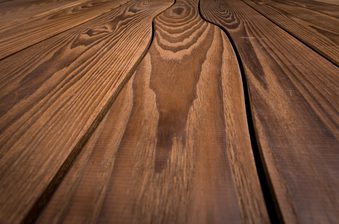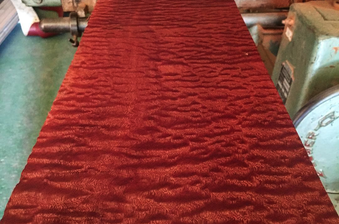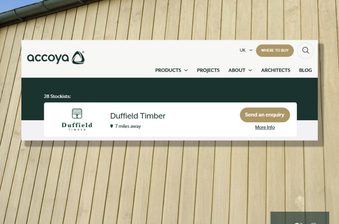A tropical African hardwood with phenomenal strength and a signature luscious dark brown colour, wenge is a truly stunning, statement choice for top-notch furniture making, joinery and flooring.
Pronounced ‘weng-gay’, wenge wood is a product of the Millettia laurentii tree, which is native to the tropical central region of Africa — more specifically, the highland forests of Cameroon, Gabon, the Republic of Congo and the Democratic Republic of Congo.
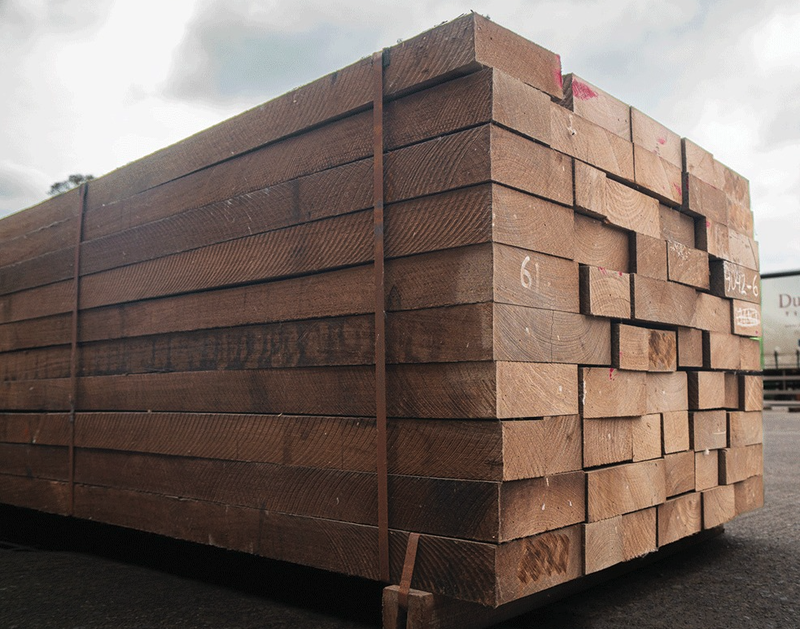
Whilst a beautiful, ornamental tree with drooping branches and purplish-blue flowers during spring and summer, its timber is equally highly valued.
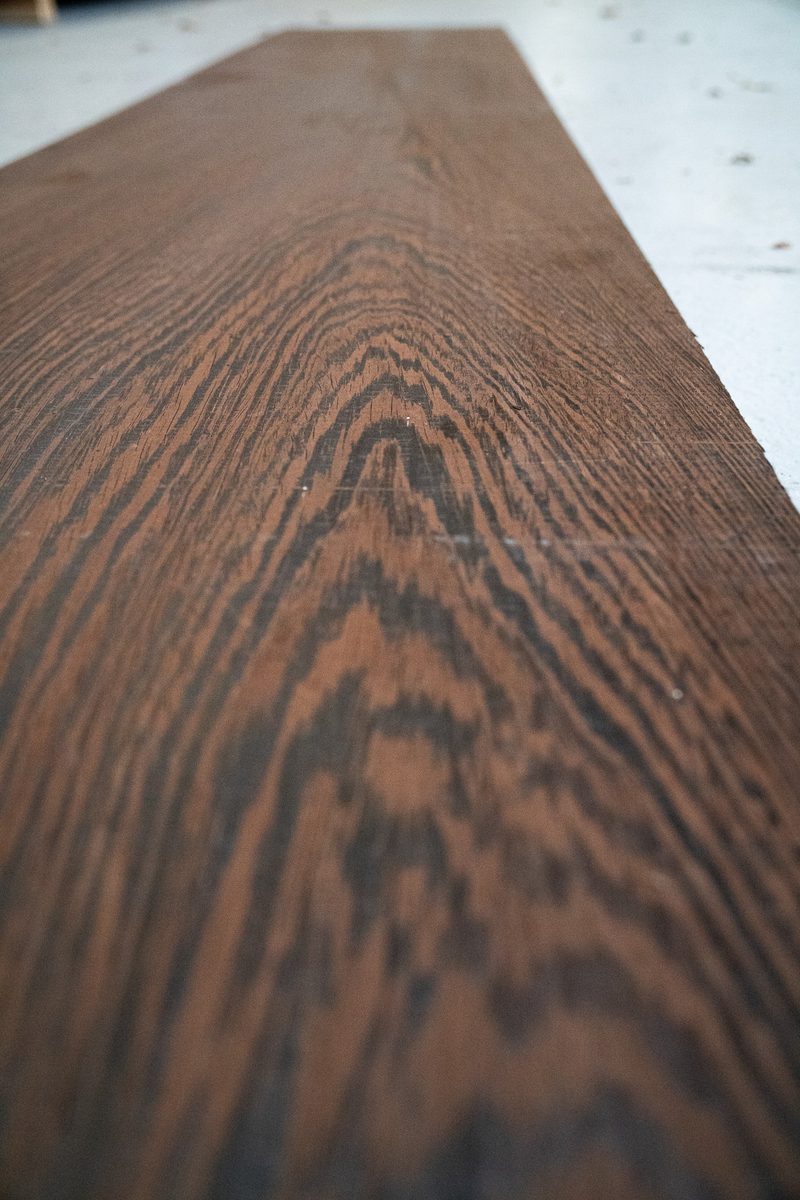
The species is closely associated with another well-known tropical African hardwood, panga panga (Millettia stuhlmannii), sharing the same genus. Given their close biological relationship, visual similarity and comparable outdoor performance, the two are often confused — sometimes, panga panga is sold under the trade name wenge.
Wenge is also sometimes known as faux ebony, given its similarity to the sought-after dark-coloured tropical hardwood.
Let’s explore the wonders of wenge in a little more detail.
Properties
Colour
Sawn wenge wood boasts a medium-dark brown hue. This rich, chocolatey colour is interwoven with occasional black streaks.
Penetrating oil-based finishes can cause wenge to darken considerably, so consider a clear water-based polyurethane coat if you’re wanting to retain its original tones.
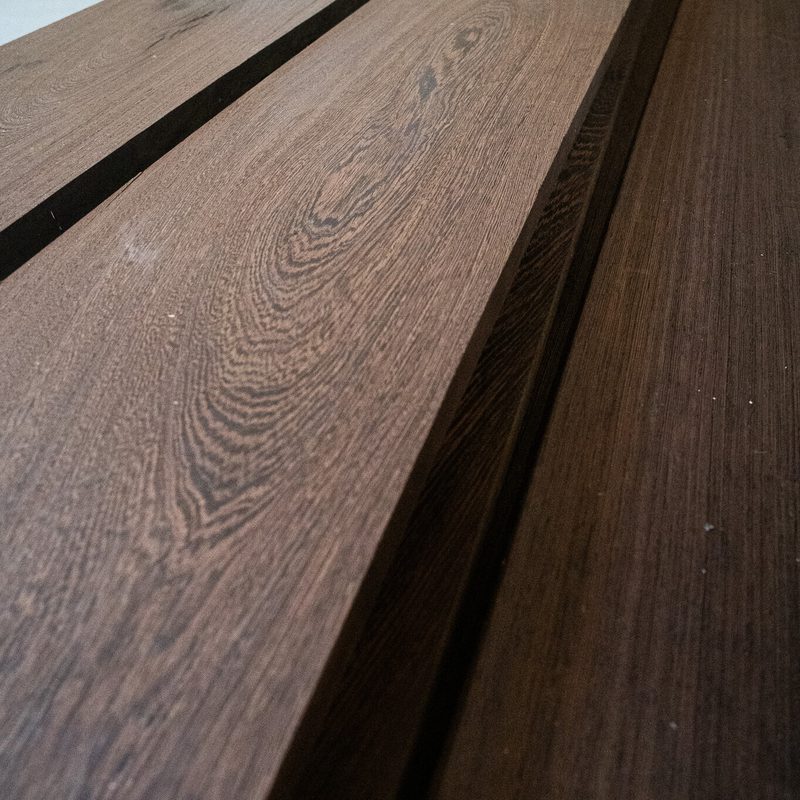
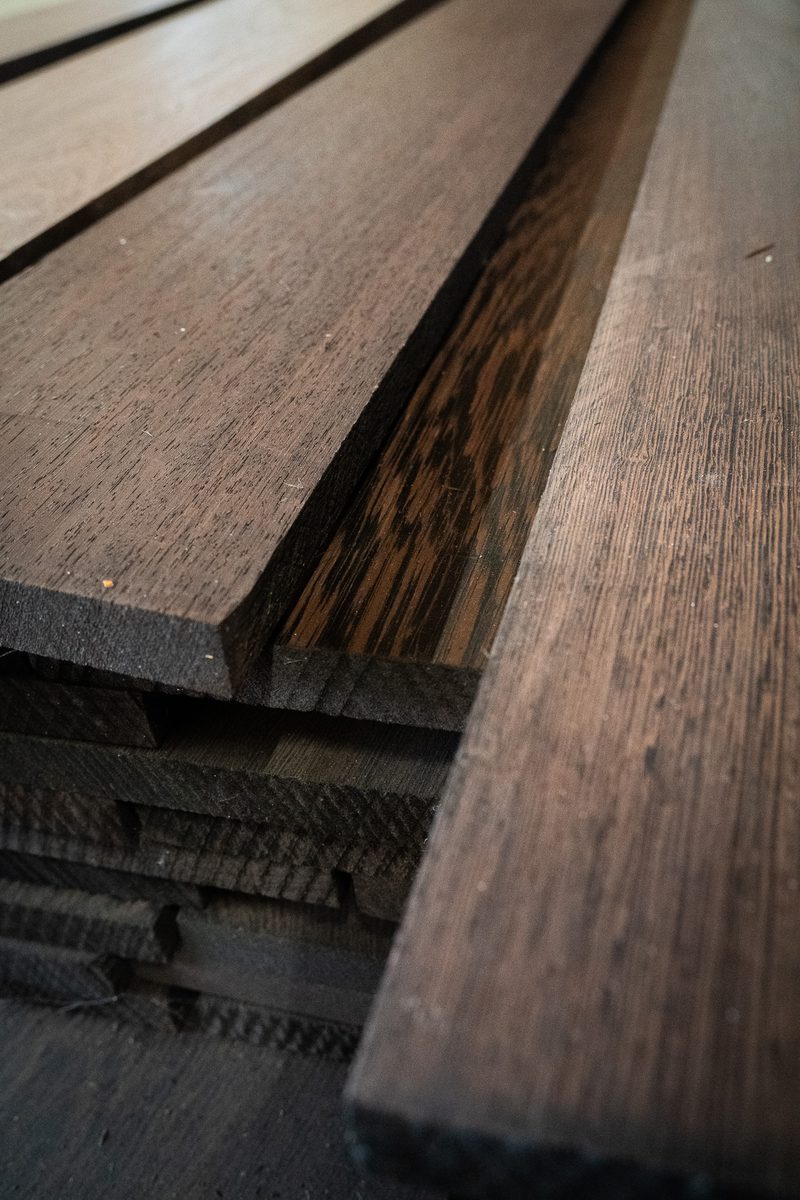
Grain and texture
Wenge has a straight grain, with a very coarse, open-pored texture.

Strength
With a dry density of 870 kg/m3, wenge is one of the heaviest, densest timbers available.
The wood boasts a Janka hardness test score of 7,300 N — which means it takes 7,300 N of force to implant a small steel ball into a piece of wenge. This is greater than white oak (6,000 N), teak (5,140 N) and mahogany (3,600 N), themselves very dense woods.
Needless to say, wenge is incredibly resistant to knocks, bumps, dents and abrasions.
Outdoor durability
Like most hardwoods from Africa, wenge boasts excellent resistance to fungal attack and decay. If you do decide to use wenge outdoors, have no fear about its ability to withstand the elements, particularly if you treat it with a protective woodcare finish.
That said, it is rather expensive — and therefore possibly not a wood you’d want to risk for applications like outdoor furniture or decking.
Workability, sanding and finishing
Wenge can be a challenging wood to work with. The wood is well known to splinter, so take a lot of care when handling. These can cause infection.
Wenge is workable with both hand and power tools, but its exceptionally high levels of density mean that it can have a blunting effect. It has good steam bending properties.
Variations between light and dark sections can cause wenge to sand unevenly. Be aware of splinters, as well as the wood’s sawdust which can cause dermatitis, eye irritation and abdominal cramps.
Wenge finishes well, with the application of a walnut oil, danish oil, linseed oil helping the grain to pop. Note that solvent-based penetrating oils can cause the wood to darken, so a clear water-based polyurethane coat might be preferred.
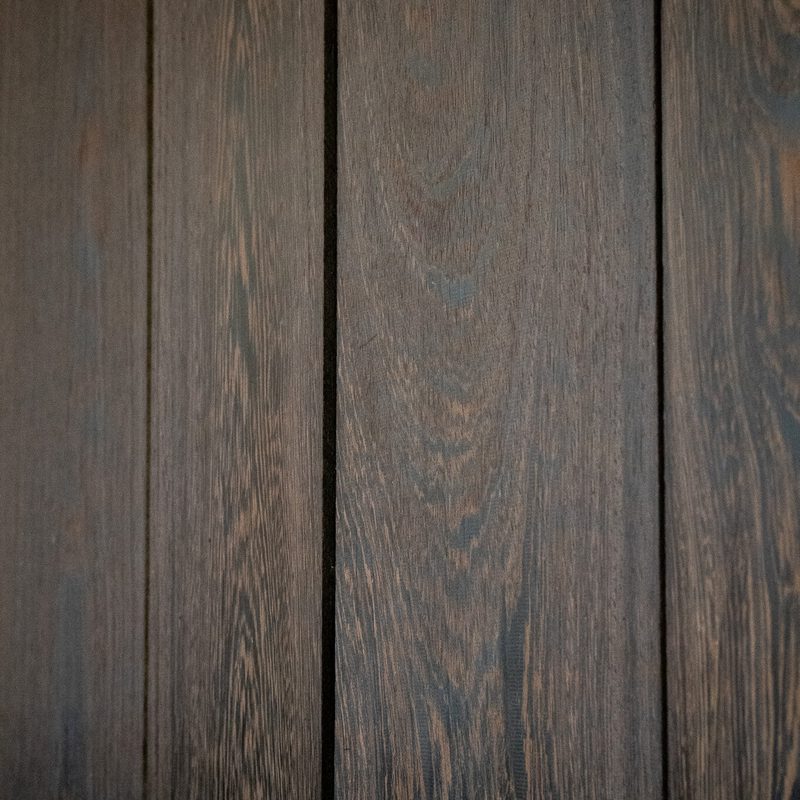
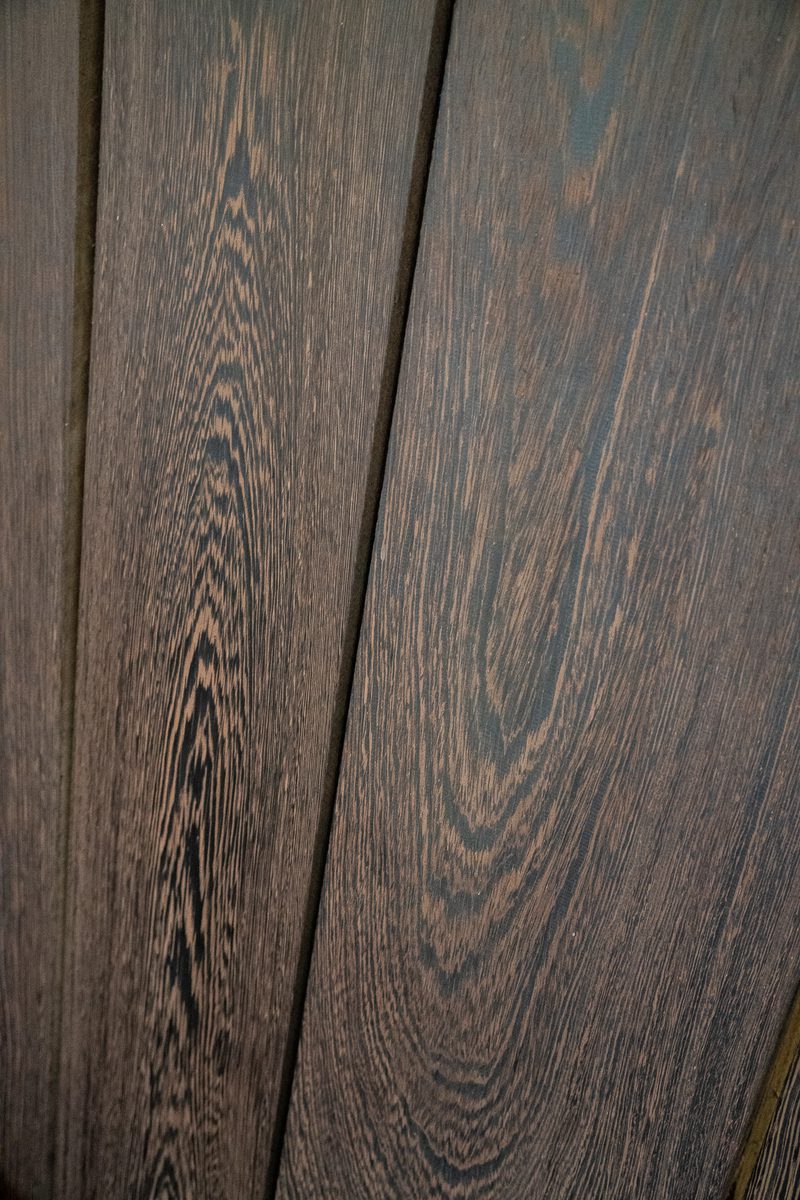
Uses
Furniture: Wenge is a luxury, high-end wood for drawers, shelves, tables, chairs and other special interior joinery projects. It is also often used as veneer.
Flooring: Wenge’s exceptional density makes it a very hard-wearing, scratch-resistant solution for flooring and staircases. Given it can be very expensive, engineered wenge flooring is a popular alternative to solid wood.
Turned items and novelty objects: Advanced woodturners can use wenge for unique, ornamental projects. It is popular for segmented woodturning and can be used to make chess boards, canes and tool handles.
Musical instruments: In particular, acoustic guitars.
The wood even has traditional medicinal uses in treatment of liver complaints, skin diseases, constipation, fever and epilepsy.
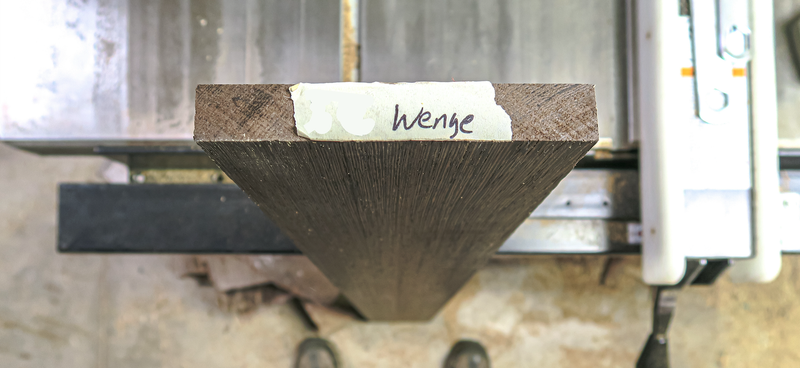
Prices
Most tropical hardwoods have lower levels of commercial availability compared to other types of woods: they are relatively slow growing and are less widely distributed. Their fantastic physical properties also make them highly sought after, and they also have to be sustainably sourced, harvested and then shipped across the globe.
What this all means: tropical hardwoods naturally command a higher price. Wenge is no exception: prices vary dramatically depending on availability, and it’s not unusual to pay upwards of £400 per m2. Prices for engineered wenge floors are naturally lower. Sawn boards woodworking can often be found in specialist hobbyist shops and can vary widely in price, so it’s hard to provide an exact figure.
Sustainability
The twin factors of low availability and high demand mean that sustainability is always a concern with tropical hardwoods, particularly wenge, which has been listed as an endangered species on the IUCN Red List since 2011. Historically, it has been overexploited and its habitat diminished.
All timber that is imported into the UK and EU is subject to a number of rules and regulations on sustainability — UKTR and EUTR. In the near future, these regulations will become even stricter, with the requirement for a GPS for each felled tree. It’s essential to source your wenge from a reputable timber merchant with a clear environmental policy (like us!).
You can specify PEFC or FSC certified wenge. This gives you an assurance of the wood’s sustainability and its provenance through the supply chain. Or you might like to explore an alternative wood that mimics wenge, without the associated cost or potential environmental implications — perhaps like American Black Walnut.
We've written in a little more detail about how we ensure traceability and sustainability in the sourcing of African hardwoods, like wenge.
If you’re interested in unusual, exotic timber species, you might like to read some of our other articles.
Planning a project with wenge?
We don’t blame you — it’s a truly stunning, one-of-a-kind wood! We often take deliveries of sustainably-sourced wenge from central Africa, so if you’re interested in getting your hands on some, contact our team of timber experts to discuss your requirements.
Also, if you’re nearby, be sure to head down to our hobby hall — it’s a woodworker’s paradise, full of exotic sawn hardwoods like wenge, panga panga, iroko, sapele and ipe. We’re at HG4 5JB, near Ripon, North Yorkshire — just off the A1. It would be great to see you.

